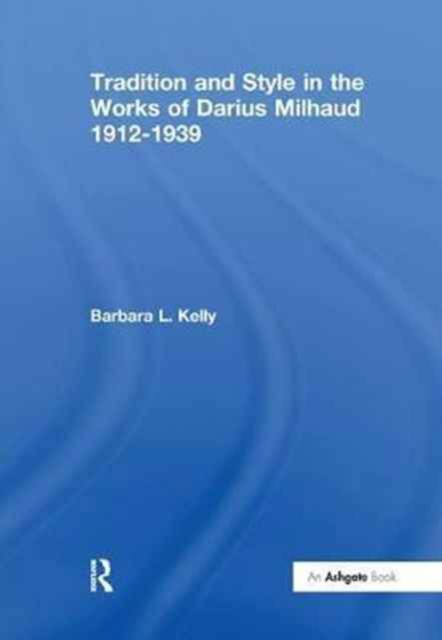
- Afhalen na 1 uur in een winkel met voorraad
- Gratis thuislevering in België vanaf € 30
- Ruim aanbod met 7 miljoen producten
- Afhalen na 1 uur in een winkel met voorraad
- Gratis thuislevering in België vanaf € 30
- Ruim aanbod met 7 miljoen producten
Zoeken
€ 71,95
+ 143 punten
Omschrijving
Described by Maurice Ravel as one of the most considerable talents in French music of his generation, Darius Milhaud remains a largely neglected composer. This book reappraises his contribution, focusing on the emergence of the composer's style until his Jewish background forced his exile to the United States on the eve of the World War II. The period 1912-1939 spans the crucial years that mark the development of Milhaud's mature style. It was also during this time that he published his most important writings on contemporary music and its relationship to the past. Barbara Kelly discusses the extent to which Milhaud's complex views on the idea of a French national musical heritage relate to his own practice, and considers how his works reflect the balance between innovation and tradition. Drawing comparisons with contemporaries, such as Debussy, Satie, Schoenberg, Stravinsky and Poulenc, the book argues that the rhythmic vitality of Milhaud's style and his modal approach within a polytonal context mark him out as an original and distinctive composer.
Specificaties
Betrokkenen
- Auteur(s):
- Uitgeverij:
Inhoud
- Aantal bladzijden:
- 228
- Taal:
- Engels
Eigenschappen
- Productcode (EAN):
- 9781138252080
- Verschijningsdatum:
- 6/03/2017
- Uitvoering:
- Paperback
- Formaat:
- Trade paperback (VS)
- Afmetingen:
- 168 mm x 245 mm
- Gewicht:
- 419 g

Alleen bij Standaard Boekhandel
+ 143 punten op je klantenkaart van Standaard Boekhandel
Beoordelingen
We publiceren alleen reviews die voldoen aan de voorwaarden voor reviews. Bekijk onze voorwaarden voor reviews.












